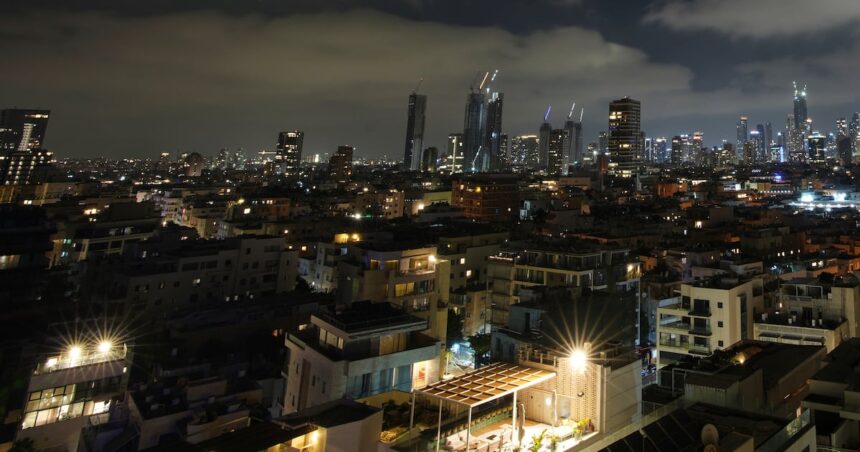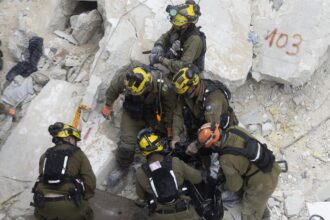The volatile Middle East plunged deeper into uncertainty Tuesday night as Iran launched approximately 180 ballistic missiles at Israel, marking a dramatic escalation in the regional conflict that threatens to engulf multiple nations. This assault, which Iranian officials described as retaliation for Israel’s targeted killings of Hezbollah and Hamas leaders, represents the most direct military confrontation between the two adversaries in decades.
“This operation has been concluded, and we have no plans for further attacks unless Israel responds,” said Iran’s United Nations mission in a statement shortly after the barrage. However, Israeli Prime Minister Benjamin Netanyahu swiftly countered with an ominous warning: “Iran made a big mistake tonight—and will pay for it.”
Despite the intensity of the attack, Israel’s sophisticated air defense systems, including the Iron Dome and Arrow interceptors, successfully neutralized most incoming missiles. Israeli military officials reported only “limited damage” to an air base in southern Israel, with no casualties among civilian populations. This technological shield, developed with substantial American assistance, proved crucial in preventing potentially catastrophic damage.
The international response was immediate and vigorous. U.S. President Joe Biden convened an emergency meeting with his national security team, subsequently issuing a forceful condemnation of Iran’s actions. “We stand unequivocally with Israel and will support its defense against these attacks,” Biden stated from the White House, while urging restraint to prevent further escalation.
This missile exchange follows a pattern of intensifying hostilities. In April, Iran launched a similar but smaller drone and missile strike against Israel following an Israeli airstrike on Iran’s embassy compound in Damascus. The current attack appears to be direct retaliation for Israel’s targeted killings of Hamas political leader Ismail Haniyeh in Tehran and Hezbollah commander Hassan Nasrallah in Beirut.
Regional analysts note that this cycle of retaliation carries profound risks. “We’re witnessing the dangerous collapse of traditional deterrence frameworks,” explains Dr. Amira Hassan, Middle East security specialist at the University of Toronto. “Each side feels compelled to respond to maintain credibility, creating a spiral that becomes increasingly difficult to control.”
Economic markets reacted predictably to the heightened tensions, with oil prices surging over 4% in overnight trading on fears of potential disruptions to Middle Eastern energy supplies. The financial implications extend beyond petroleum markets, as global investors shifted toward safe-haven assets amid concerns of a widening conflict.
For Canadian policymakers, the escalation presents complex diplomatic challenges. Foreign Affairs Minister Mélanie Joly called for “immediate de-escalation by all parties” while reaffirming Canada’s commitment to regional stability. Meanwhile, Canadian military assets in the region have been placed on heightened alert status.
The conflict’s humanitarian dimensions continue to worsen. International aid organizations report critical shortages of medical supplies, food, and clean water throughout Gaza, while civilian infrastructure in Lebanon has suffered extensive damage from Israeli airstrikes targeting Hezbollah positions.
As dawn breaks across the Middle East, the question hanging over the region is not if Israel will respond to Iran’s missile attack, but how and when. Military analysts suggest Israel possesses multiple retaliatory options, including strikes against Iranian nuclear facilities, oil infrastructure, or military installations.
The international community now faces a critical test: can diplomatic efforts interrupt this dangerous cycle of retaliation before it transforms into a full-scale regional war with global implications? As citizens across multiple nations hold their breath, the answer remains perilously uncertain.























